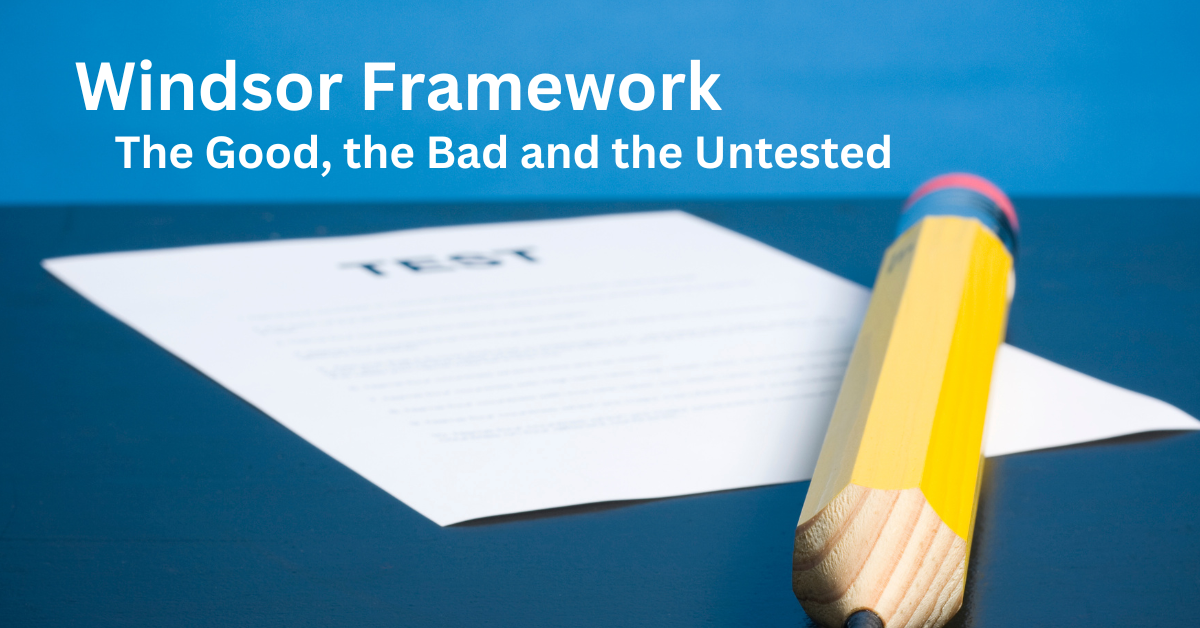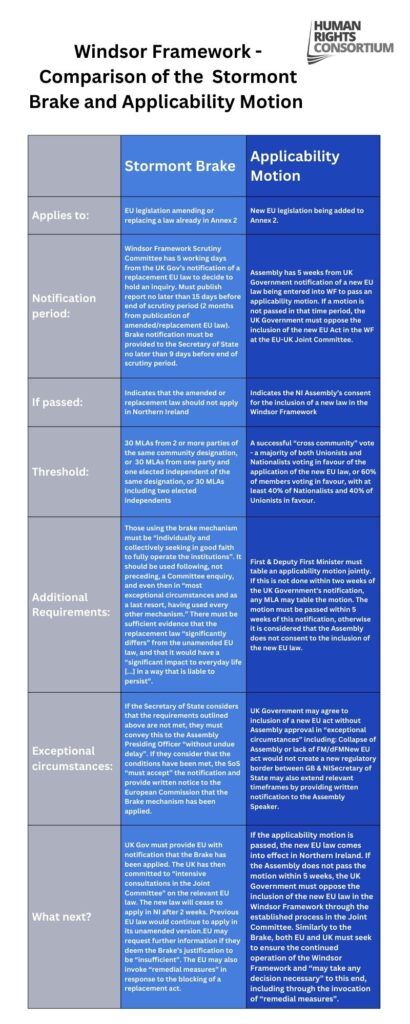The Windsor Framework: the Good, the Bad and the Untested

The Windsor Framework, and the Protocol that came before it, were developed and negotiated between the EU and the UK to manage the new regulatory framework in Northern Ireland resulting from the UK’s exit from the EU, while maintaining the Belfast/Good Friday Agreement commitments to cross-border cooperation and to maintaining the Common Travel Area between the UK and Ireland, particularly on the land border.
The Framework, specifically, was negotiated in response to critiques that the Protocol caused friction in the movement of goods between Great Britain and Northern Ireland. While this was the focus of mainstream political discourse and much of the media commentary, the Windsor Framework and the Protocol it built on have significant implications for human rights and equality in Northern Ireland as well as cross-border cooperation on the island.
The new arrangements include newly created “democratic scrutiny” mechanisms, namely the Stormont Brake and ‘applicability motions’ which allow MLAs to create procedural hurdles for new and amended EU laws coming into force in Northern Ireland. While there are a number of additional checks and balances placed on these mechanisms, including an Assembly Democratic Scrutiny Committee which can scrutinise EU law coming down the track, they nevertheless have the potential to negatively impact equality and human rights if they are abused in a similar manner as the “petition of concern”. We explore the differences between these two mechanisms in more depth in the briefing below, including this handy table which summarises the changes.

This shifting approach comes in a context of continued regression of rights in Northern Ireland and a negligence from the UK Government when considering the impact of their current and future legislation on the commitment made in both the original Protocol and the Windsor Framework to non-diminution of rights in Northern Ireland.
Our briefing, which is available to download below, explores how these “democratic scrutiny” mechanisms should function and their potential implications for human rights and equality. It also explores the potential impacts of continued and expanding regulatory divergence between Northern Ireland and both the rest of the UK and the EU, particularly looking at how this could impact cross-border cooperation.